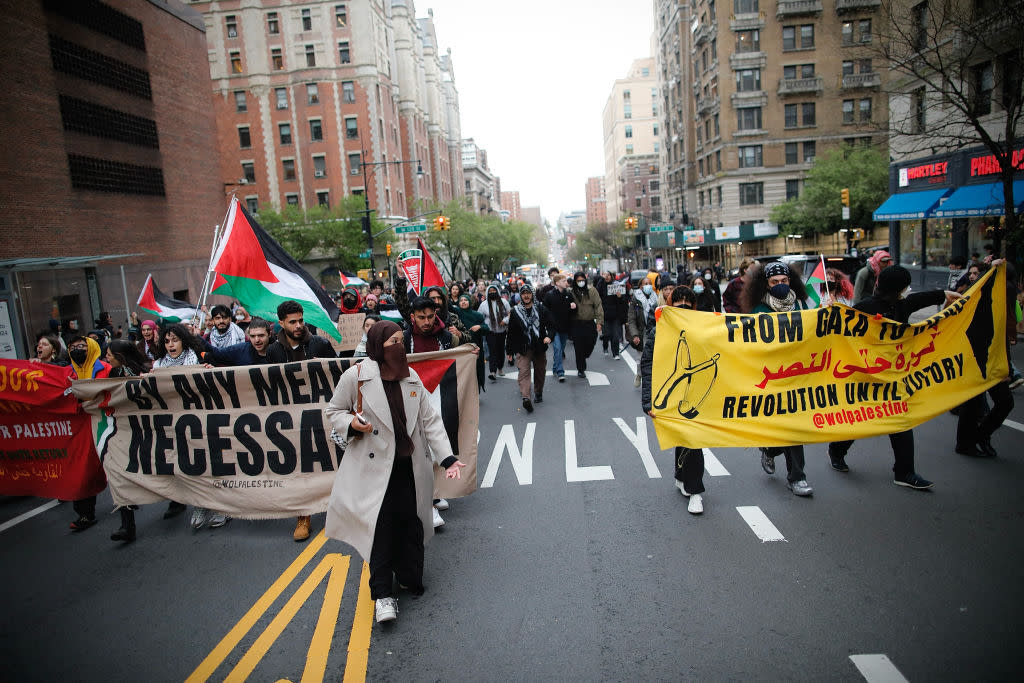Most Jewish college students say anti-Israel protests disrupted their classes, a quarter say they faced physical or verbal assault

Anti-Israel campus protests and encampments have made it harder for most Jewish college students to “learn, study or concentrate,” according to a new survey by Hillel International, with some 30% saying the demonstrations have made them scared to attend classes or be on campus.
Roughly half of Jewish students — 51% — said the demonstrations disrupted their ability to attend class, including 20% who said that they were physically blocked from attending a class, according to the study. The rest said classes were canceled, interrupted or moved to Zoom.
A majority of respondents, 61%, said there has been antisemitic, threatening or derogatory language directed toward Jewish people during protests at their school. Nearly a quarter of the respondents from schools with encampment protests said that they personally were either physically assaulted (7%) or verbally assaulted (17%).
Since Oct. 7, Hillel has said that it has recorded nearly 1,600 incidents of antisemitism on campus. The protests have triggered vigorous debates across the country and around the world over antisemitism, free speech, academic freedom and the roles of universities. Donors, particularly Jewish ones, have increasingly begun pausing their donations to certain universities over their administrations responses to the encampments.
Forty percent of total respondents said they felt a need to hide their Jewish identity, and 32% said they were “scared” to attend Jewish-related activities on campus. A quarter said professors had said something antisemitic or anti-Israel to them, and 17% said they believed faculty treated them differently “because I am Jewish or because of how I feel about Israel.” Eleven percent said they were considering transferring to another university because of the situation on their campus.
“Our findings demonstrate that a majority of Jewish students surveyed have experienced bias and discrimination in their classroom and academic experiences based on faculty and staff abusing their authority in support of the rule-breaking and unlawful anti-Israel encampments and protests,” Adam Lehman, president and CEO of Hillel International, said in a statement.
“Jewish students, and all students, deserve to pursue their education and celebrate their graduations free from disruption, antisemitism, and hate,” Lehman said. “University leaders are legally required to address these hostile and discriminatory conditions, and we will continue to insist that they do so for the benefit of Jewish students and all students.”
The survey — 15-minute interviews with 310 Jewish students —was conducted for Hillel International by Benenson Strategy Group over three days earlier this month. The survey has a margin of error of 5%.

